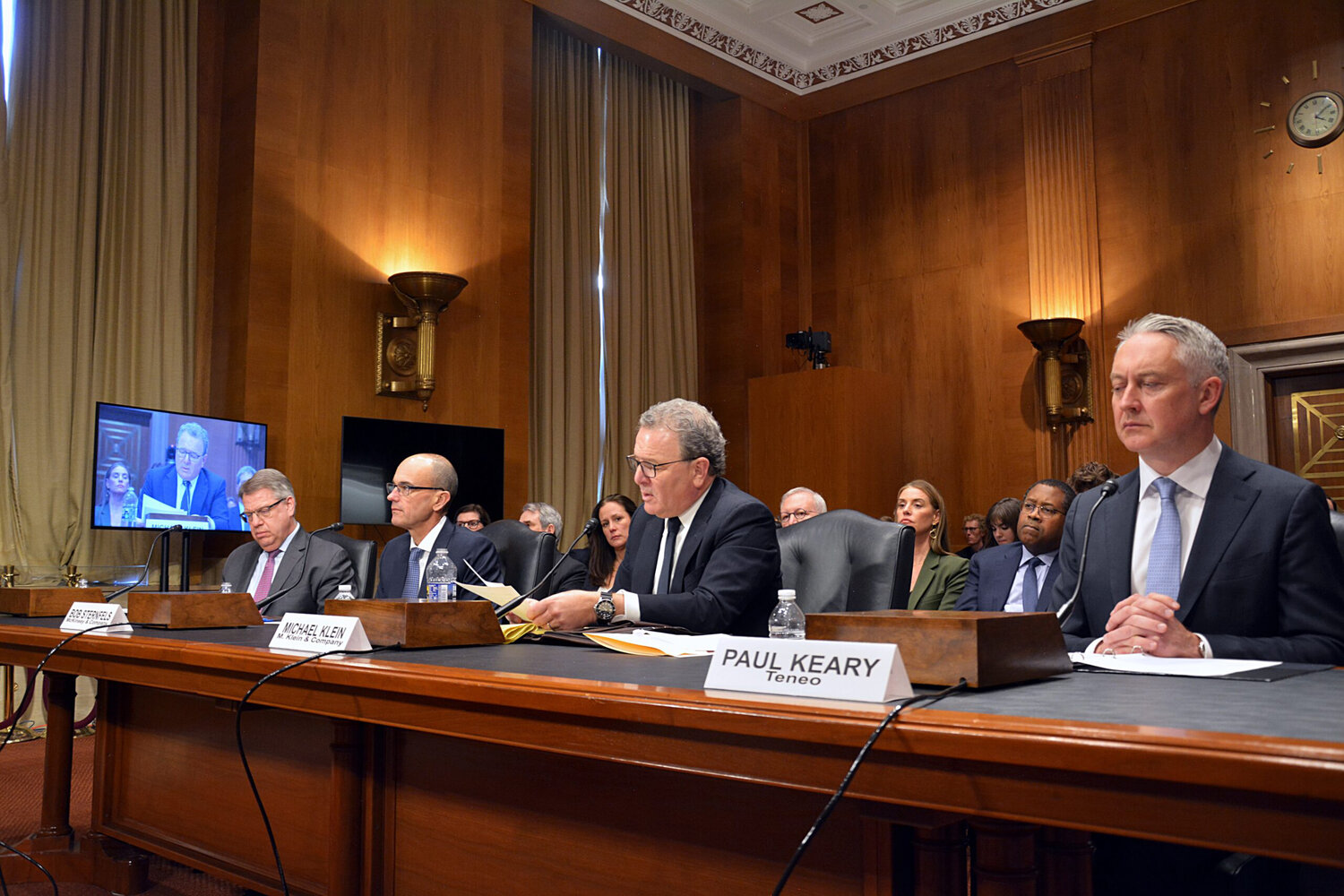Senators question US consultants withholding information on Saudi work
Two Democratic senators on an investigations panel have questioned the loyalty of four major American consulting firms, accusing them of withholding information subpoenaed by Congress regarding their work for Saudi Arabia.

You must be a member to read this story.
Join our family of readers for as little as $5 per month and support local, unbiased journalism.
Already a member? Log in to continue. Otherwise, follow the link below to join.
Please log in to continue |
Senators question US consultants withholding information on Saudi work
WASHINGTON — Two Democratic senators on an investigations panel have questioned the loyalty of four major American consulting firms, accusing them of withholding information subpoenaed by Congress regarding their work for Saudi Arabia.
Sens. Richard Blumenthal, D-Conn., and Maggie Hassan, D-N.H., criticized executives of the firms for siding with Saudi Arabia in a hearing held Tuesday by the Senate Homeland Security & Governmental Affairs Committee’s Permanent Subcommittee on Investigations.
The subcommittee subpoenaed records last August related to services the consultancies provided to Saudi Arabia’s Public Investment Fund, which is chaired by Saudi Arabia’s crown prince and Prime Minister Mohammed bin Salman. The subpoena is part of the panel’s inquiry into Saudi Arabia’s use of “soft power” and “other influence strategies” in the United States, wrote Blumenthal, who chairs the subcommittee, in a memo.
McKinsey & Co., Boston Consulting Group, M. Klein & Co. and Teneo have not fully complied with the subpoena yet.
Their executives, who appeared as witnesses at the hearing, cited Saudi court orders and threats of civil and criminal charges should they produce the documents the subcommittee is asking for.
Michael Klein, managing partner at M. Klein, said that violating the court order and facing criminal penalties is “not a risk I can take for myself or for my employees.”
“Frankly, we are between a rock and a hard place,” said Bob Sternfels, global managing partner at McKinsey. While the company was contesting the ruling in Saudi Arabia, it did what it could to comply with the subpoena, he added.
Blumenthal rejected these remarks, saying: “You have chosen sides. You have chosen the Saudi side, not the American side.”
Hassan said that the firms “appear to place (their) loyalties to Saudi Arabia above (their) loyalty to the United States.”
According to a written statement by the Saudi Public Investment Fund, the committee is requesting information that is “confidential and classified.” However, the fund said it hopes to “work with the subcommittee to resolve these issues.”
Both the Saudi fund representatives and the consultancies’ executives argued that they had already provided hundreds of records to the Senate.
Blumenthal detailed some of the documents the subcommittee received: 40 pages of calendar entries with the meeting attendees’ names redacted, pages upon pages of press releases and completely blacked-out contracts.
“Currently, (the PIF consulting firms are) doing what the Saudi government wants, not what the U.S. government wants,” said Ben Freeman, who is the director for Democratizing Foreign Policy at the Quincy Institute for Responsible Statecraft and a research expert on foreign influence.
“That might certainly change, but based on the information that’s currently been provided to the Senate, the firms have chosen to fully cooperate with Saudi Arabia,” Freeman said.
As of now, all four consulting companies are still working for the Saudi fund. Blumenthal and Sen. Laphonza Butler, D-Calif., questioned why the companies would stay in business with a client that threatened their employees.
But the ranking subcommittee member, Sen. Ron Johnson, R-Wis., expressed his sympathy with the consultants.
He said that conducting oversight over the Saudi fund was not his priority but that he still chose to join Blumenthal in calling for full compliance because “any foreign entity wishing to do business in the U.S. must comply with U.S. law and be responsive to congressional subpoenas.”
Teneo CEO Paul Keary and Rich Lesser, global chair at Boston Consulting Group, both called the situation “unprecedented.”
None of the consulting firms’ leadership indicated that they had any plans to end their business relationship with the Saudis.
Just one of the firms, Teneo, is currently registered under the Foreign Agents Registration Act, which includes a copy of its $4 million contract with the Saudi fund.
Those who lobby in the United States on behalf of foreign governments or businesses have to register under FARA and regularly provide information to the Department of Justice about the nature of their work and their compensation.
Sternfels said that, according to expert counsel, McKinsey does not qualify as a foreign agent under the law, to which Blumenthal responded that the act “needs to be strengthened.”






